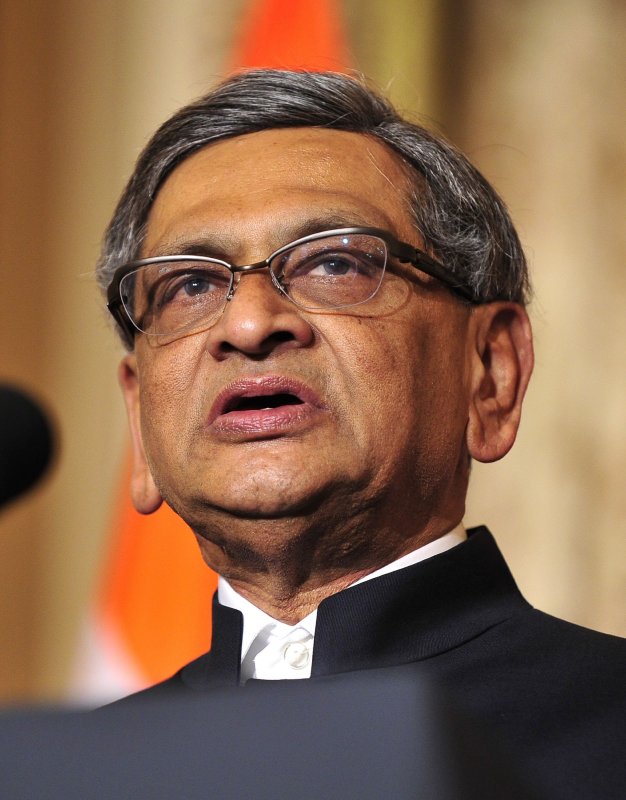Foreign Minister S.M. Krishna of India. UPI/Ron Sachs/Pool |
License Photo
NEW DELHI, Feb. 1 (UPI) -- India condemned U.S. police for radio tagging Indian students who are suspected of involvement in a sham university in San Francisco.
External Affairs Minister S.M. Krishna said Indian students weren't criminals and that ankle collars are "unacceptable" and should be removed. The students are victims of the fraudulent university and not part of the fraud, he said.
Police shut down the Tri-Valley University in Pleasanton, Calif., with around 1,500 students -- 95 percent believed to be from India -- over concerns it is part of an immigration racket. Many of the students are from the southern state of Andhra Pradesh and face deportation.
"We demand that the U.S. government initiate severe action against those officials responsible for this inhuman act," Krishna said. "Indian students are not criminals. The radio collars should immediately be removed."
Ministry of External Affairs officials said they had talks with U.S. authorities, saying the students "must be treated fairly and reasonably."
In the Andhra Pradesh capital Hyderabad, the All India Students' Federation demonstrated in streets near the consulate.
A U.S. Embassy statement in India said the use of ankle monitors by U.S. police is "widespread across the United States and standard procedure" for many investigations. "It does not necessarily imply guilt or suspicion of criminal activity," the statement said.
"An ankle monitor sends a radio frequency signal containing location and other information to a receiver. It allows for freedom of movement and is a positive alternative to confinement during a pending investigation."
Police say the university is a front for helping foreign nationals illegally acquire immigration status.
But many parents of the students didn't know that their children were at Tri-Valley University.
Some of them went to the United States to another university but moved to Tri-Valley because it was less expensive. Tri-Valley also allowed students to work from the first day of they started courses, a Tri-Valley Indian student told the Express newspaper in Hyderabad.
"Students who did not get scholarships or were not in a position to afford to pay the course fee used to prefer joining Tri-Valley," he said.
"They genuinely believed that the university and its method of working had been authorized by the U.S. federal government, including Department of Homeland Security and U.S. Immigration and Customs Enforcement," president of the Telugu Association of North America, Jayaram Komati, said.
A U.S. ICE spokesman said they had "set up set up an e-mail address and voice mail that Tri-Valley students can use to contact ICE Homeland Security Investigations directly with their questions."
Overseas education consultancy Youth-World Consulting, based in Andhra Pradesh, said the Tri-Valley incident has tarnished the image of the United States as an education destination.
"We have received a number of calls from parents of students aiming to study in the United States about the authenticity of universities," Anil Kumar, chief executive officer of YWC, said. "While this is an individual case of a university not following the rules, the entire image of the United States as an education destination has taken a blow."





